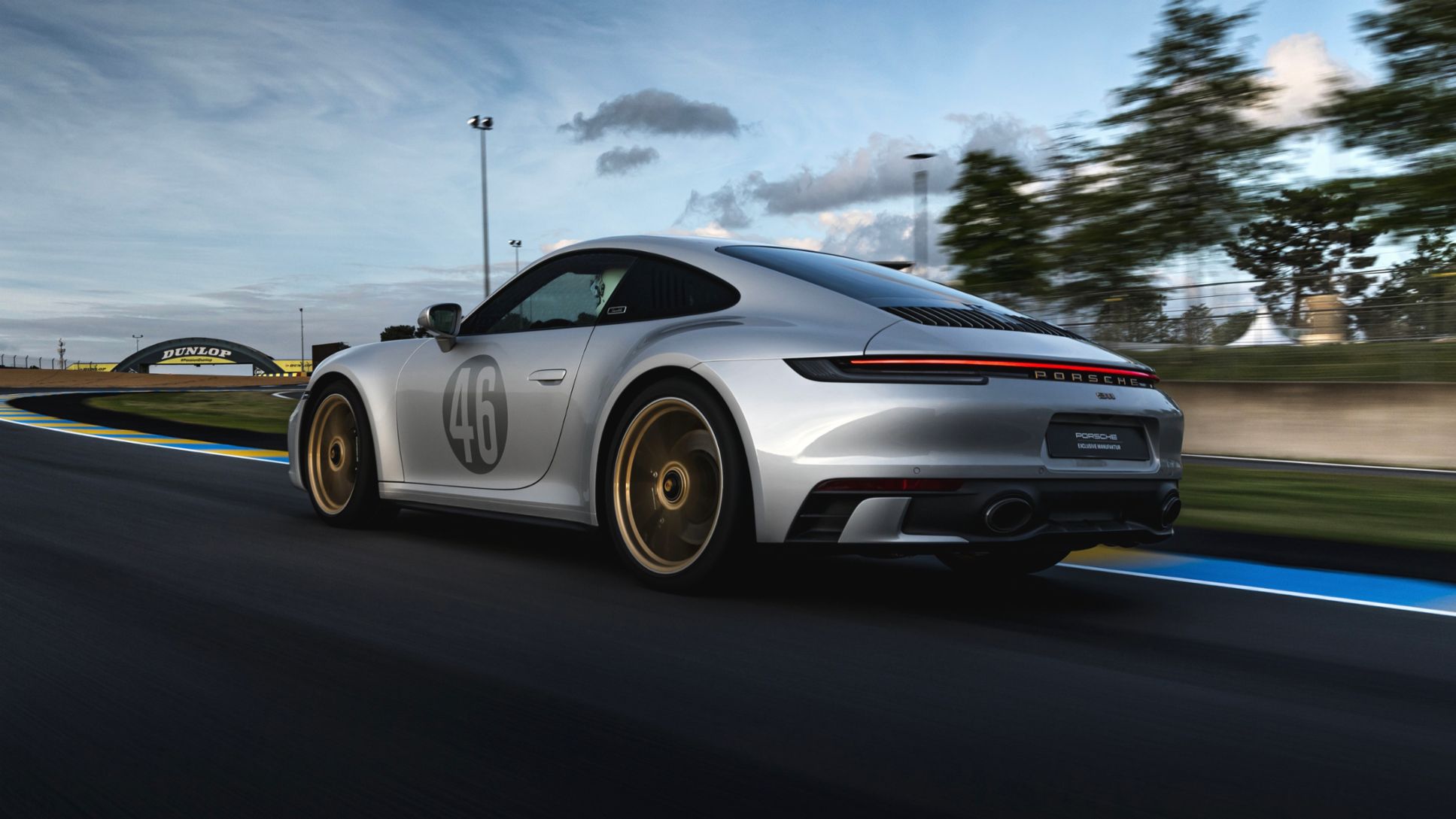When it comes to luxury sports cars, Porsche is a name that instantly comes to mind. Known for its sleek design, powerful performance, and exceptional engineering, Porsche has established itself as a top contender in the automotive industry. But one question that often lingers in the minds of potential buyers is: how long do Porsches actually last?
The longevity of a Porsche depends on various factors, including maintenance, driving habits, and the model of the car. However, with proper care and regular servicing, a Porsche can easily last for well over 200,000 miles. In fact, many Porsche owners report their vehicles reaching the 300,000-mile mark and beyond. This is a testament to the exceptional build quality and durability that Porsche is known for.
One key factor that contributes to the longevity of Porsches is the meticulous attention to detail and precision engineering that goes into every vehicle. From the engine to the suspension, every component is designed to withstand the test of time and provide a reliable driving experience. Additionally, Porsche owners often rave about the exceptional craftsmanship and build quality, which further adds to the longevity of these vehicles.
It is important to note that regular maintenance and servicing are crucial in ensuring the longevity of any vehicle, including Porsches. Following the manufacturer’s recommended maintenance schedule and addressing any issues promptly can help prevent major problems down the line and extend the lifespan of the car. Furthermore, driving habits, such as aggressive acceleration or harsh braking, can have an impact on the longevity of a Porsche and should be taken into consideration.
In conclusion, Porsches are renowned for their longevity and can last well beyond 200,000 miles with proper care and maintenance. The exceptional build quality, precision engineering, and attention to detail contribute to the durability of these luxury sports cars. With regular servicing and responsible driving habits, a Porsche can be a reliable companion for many years to come.
How long do Porsches last?
When it comes to the lifespan of a Porsche, there are several factors to consider. First and foremost, proper maintenance and regular servicing play a crucial role in extending the life of any vehicle. Porsches are no exception. Regular oil changes, fluid checks, and other routine maintenance tasks can help keep a Porsche running smoothly for many years.
On average, a well-maintained Porsche can last for over 200,000 miles or more. However, this number can vary depending on the specific model, driving conditions, and how the vehicle is used. It’s important to note that Porsches are built with high-quality materials and components, which contribute to their longevity.
In addition to maintenance, driving habits also play a role in how long a Porsche lasts. Aggressive driving, excessive speeding, and harsh braking can put unnecessary stress on the engine and other components, potentially shortening the lifespan of the vehicle. On the other hand, gentle driving and a smooth driving style can help prolong the life of a Porsche.
Another factor to consider is the availability of replacement parts. Porsches are known for their precision engineering and unique design elements. While this contributes to their performance and appeal, it can also make finding replacement parts more challenging and expensive. However, with proper maintenance, many common issues can be prevented, reducing the need for frequent repairs.
In conclusion, with proper maintenance and care, a Porsche can last for many years and accumulate a high mileage. However, driving habits, model-specific factors, and the availability of replacement parts can also influence the lifespan of a Porsche. It’s important to consult with a qualified mechanic and follow the manufacturer’s recommendations for maintenance to ensure the longevity of your Porsche.
Expert insights and analysis
When it comes to the longevity of Porsches, experts have a wide range of opinions. Some experts argue that with proper maintenance and care, a Porsche can last well over 200,000 miles. They point out that Porsche vehicles are built with high-quality materials and precision engineering, which contributes to their durability.
Others, however, caution that the lifespan of a Porsche can vary depending on several factors, such as the model, the driving conditions, and the owner’s maintenance habits. They note that while Porsches are generally reliable vehicles, they do require regular maintenance and servicing to keep them running smoothly.
One area of concern for some experts is the potential for costly repairs. They highlight that Porsche parts and repairs can be expensive, which may deter some owners from properly maintaining their vehicles. However, they stress that investing in regular maintenance can help prevent larger issues and extend the lifespan of the vehicle.
Overall, the consensus among experts is that Porsches have the potential to last a long time if they are well-maintained. Regular oil changes, proper tire maintenance, and timely repairs are all important factors in preserving the longevity of a Porsche. With proper care, it’s not uncommon for a Porsche to last well beyond 100,000 miles and provide its owner with many years of enjoyable driving.
Factors that determine Porsche lifespan
The lifespan of a Porsche is influenced by several factors that can impact its durability and longevity. These factors include:
- Maintenance: Regular and proper maintenance is crucial for extending the lifespan of a Porsche. Following the manufacturer’s recommended maintenance schedule, including oil changes, fluid replacements, and inspections, can help prevent major issues and keep the car running smoothly.
- Driving habits: How a Porsche is driven can also affect its lifespan. Aggressive driving, such as frequent high-speed acceleration, hard braking, and abrupt turns, can put additional stress on the engine, transmission, and suspension, potentially leading to premature wear and tear.
- Environmental conditions: The environment in which a Porsche is driven and stored can impact its lifespan. Exposure to extreme hot or cold temperatures, as well as excessive humidity or saltwater, can accelerate corrosion and damage various components of the car.
- Quality of materials: The quality of materials used in the construction of a Porsche can significantly affect its lifespan. Porsches are known for their high-quality craftsmanship and use of premium materials, which can contribute to their longevity if well-maintained.
- Driving distance: The total mileage a Porsche accumulates over its lifetime can also play a role in determining its lifespan. Generally, Porsches are designed to be reliable and durable, capable of high mileage if properly cared for. However, excessive mileage without proper maintenance can lead to increased wear and potential mechanical issues.
- Modifications: Modifications made to a Porsche can impact its lifespan. While certain modifications may enhance performance or aesthetics, they can also introduce additional stress on the car’s components, potentially reducing its overall lifespan.
It’s important to note that these factors are not exclusive to Porsches and can apply to any vehicle. However, Porsches are renowned for their engineering and build quality, and when properly maintained and cared for, they can provide exceptional longevity and performance for their owners.
Common maintenance practices for extending Porsche lifespan
Regular oil changes: One of the most important maintenance practices for extending the lifespan of a Porsche is regular oil changes. Porsche recommends changing the oil every 5,000 to 7,500 miles or every 6 months, whichever comes first. Fresh oil helps to lubricate the engine and prevent unnecessary wear and tear on vital components.
Inspecting and replacing filters: In addition to regular oil changes, it’s crucial to inspect and replace the air, fuel, and cabin filters in a Porsche. These filters help to keep the engine and interior clean and free from debris. Regular inspection and replacement ensure optimal performance and prolong the lifespan of the vehicle.
Checking and maintaining fluid levels: Fluids such as coolant, brake fluid, and transmission fluid play a vital role in the overall performance and longevity of a Porsche. Regularly checking and maintaining fluid levels helps to ensure that these systems are functioning properly and reduces the risk of costly repairs down the line.
Regularly inspecting and rotating tires: Tires are one of the most important components of a vehicle, and regular inspection and rotation help to ensure even wear and extend their lifespan. Properly inflated and rotated tires also contribute to better fuel efficiency and overall handling.
Following the manufacturer’s maintenance schedule: Porsche provides a comprehensive maintenance schedule for each of its models. Following this schedule is crucial for extending the lifespan of a Porsche. It includes regular inspections, fluid changes, and component replacements based on mileage and time intervals. Adhering to this schedule helps to identify and address potential issues before they become major problems.
Keeping the exterior and interior clean: Regularly washing and detailing the exterior, as well as cleaning and conditioning the interior, not only keeps a Porsche looking its best but also helps to prevent the build-up of dirt and grime that can cause corrosion and damage over time.
Storing the vehicle properly: When a Porsche is not in use, proper storage is essential for maintaining its lifespan. This includes finding a climate-controlled storage facility or using a car cover to protect the vehicle from the elements. Additionally, starting the engine and driving the car periodically during long periods of inactivity helps to prevent mechanical issues.
Seeking professional maintenance and repairs: While some maintenance tasks can be done by the owner, it is important to seek professional help for more complex maintenance and repairs. Porsche specialists have the knowledge and expertise to properly diagnose and address any issues, ensuring that the vehicle remains in optimal condition for years to come.
Expert opinions on the average lifespan of Porsches

When it comes to the average lifespan of Porsches, experts have varying opinions based on different factors. While Porsches are known for their high performance and durability, the actual lifespan can be influenced by several factors, including maintenance, driving habits, and usage.
According to some experts, a well-maintained Porsche can easily last over 200,000 miles or more. These vehicles have a reputation for their robust engineering and high-quality components, which contribute to their longevity. Regular maintenance, including oil changes, fluid checks, and servicing, can help extend the lifespan of a Porsche.
However, other experts argue that the lifespan of a Porsche can be shorter if not properly maintained or driven aggressively. Hard driving, track use, and neglecting routine maintenance can put additional strain on the engine and other components, leading to premature wear and potential mechanical issues.
Furthermore, the average lifespan of a Porsche can vary depending on the specific model. Some models, such as the Porsche 911, have been known to last for decades with proper care and maintenance. On the other hand, models with more complex technology and features may have a shorter lifespan due to the potential for electronic and mechanical failures.
It’s worth noting that individual driving habits and conditions also play a significant role in determining the lifespan of a Porsche. Frequent stop-and-go city driving or extreme weather conditions can put additional stress on the vehicle, potentially affecting its longevity.
In conclusion, while Porsches are generally built to last and can have a lifespan of over 200,000 miles, the actual longevity will depend on various factors, including maintenance, driving habits, and the specific model. Regular maintenance and responsible driving can help ensure a longer lifespan for your Porsche.










